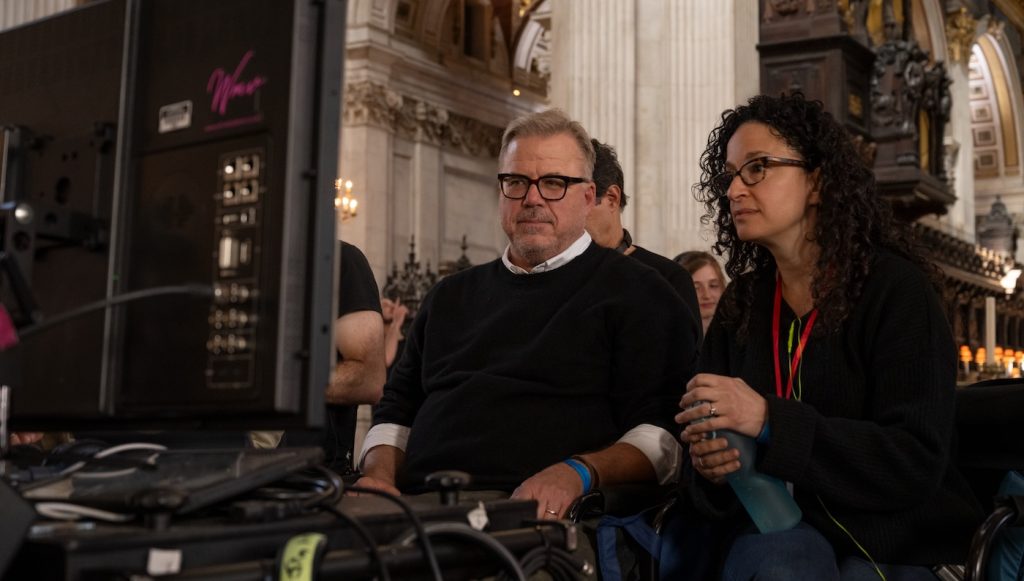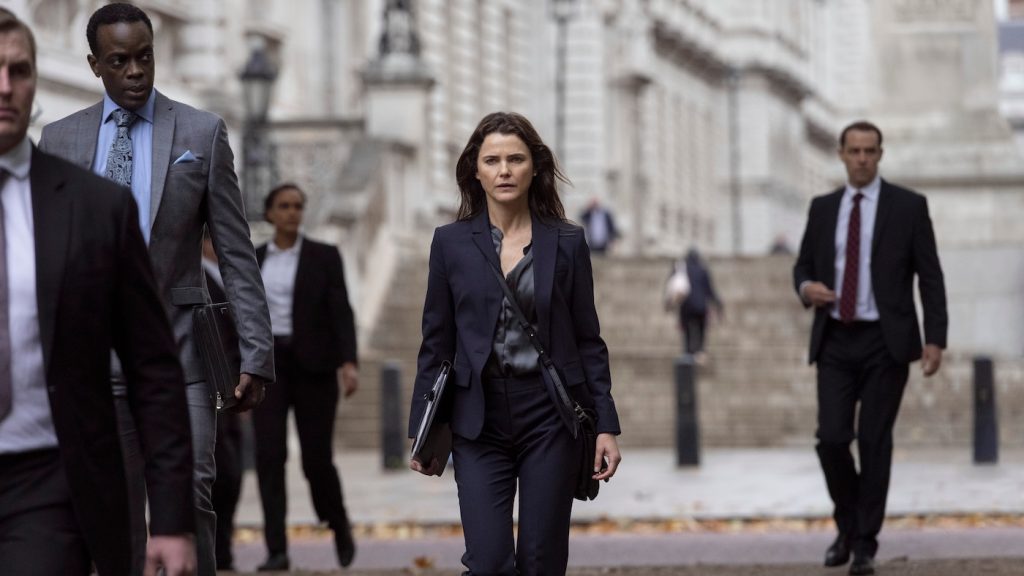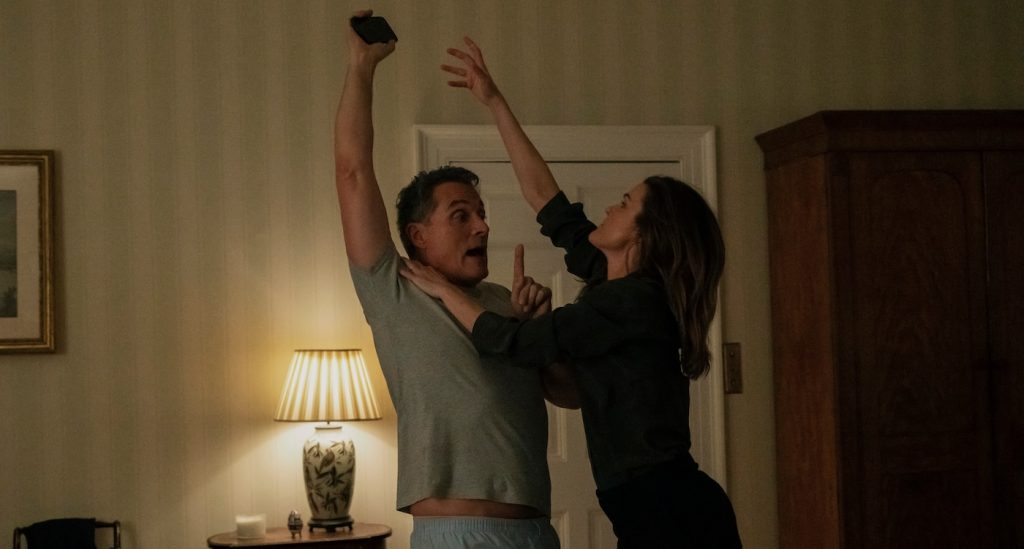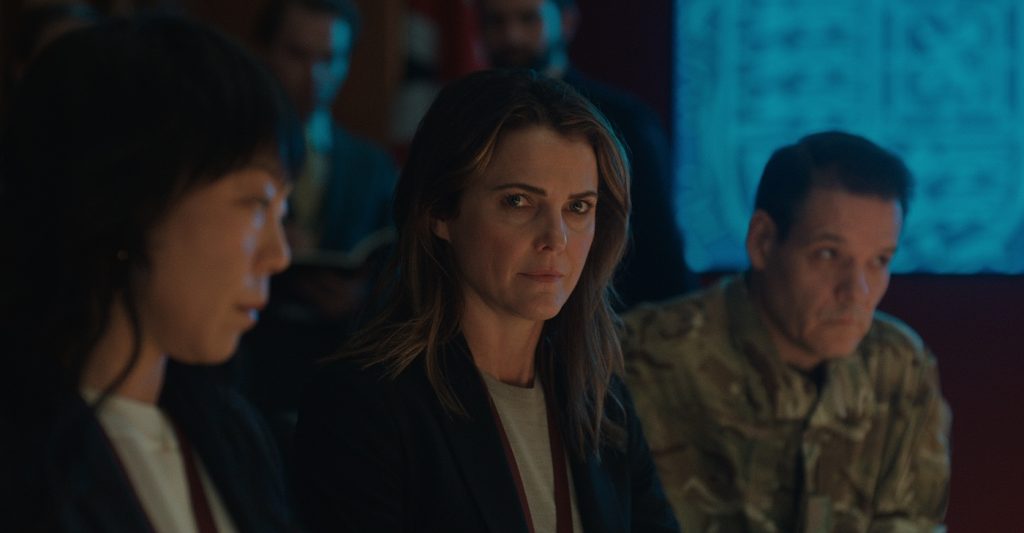“The Diplomat” Creator Debora Cahn on Refusing to Write Easy Villains in a World of Hard Choices
For Deborah Cahn, the journey from The West Wing to Netflix’s The Diplomat began with a simple encounter that revealed the extraordinary lives hidden within the foreign service. The former West Wing writer spent years cultivating relationships with real diplomats, ambassadors, and State Department officials, learning first-hand how complex the world of international politics was, and how much it demanded of the individuals who dedicated their lives to it. It gave her an idea of crafting a series around characters whose nuances speak to the complex crises they must navigate in their work. Work that, in the world of The Diplomat, can become more like an obsession.
“Those people all have a certain purity of intention,” Cahn says about the foreign service folks she’s met throughout her career. “They believe certain things about this country. They haven’t picked this work because they’re making tons of money—they’re not. They’re all really smart and could have done something more lucrative elsewhere. They’re out there representing America and the idea of America.”
What emerged was a series that refuses to traffic in obvious straw men, easy villains, or simple solutions. Cahn’s world of international diplomacy is populated by brilliant minds working at cross purposes—not out of malice, necessarily, but more out of variations of rough-edged confidence that can, at times, cross over into belligerence. These are brilliant people trying to shepherd the lives of millions while representing competing national interests. At the center stands Kate Wyler, played by Keri Russell, a woman who embodies both the idealism and pragmatism required to survive in modern diplomacy. Kate is brilliant, a bit rough-around-the-edges when it comes to the practiced finesse her new job as the U.S. Ambassador to England requires, and she is disarmingly honest.
Russell is never anything less than compelling—you couldn’t cast a better gravitational force to build a complex narrative machine around—yet Cahn delights in supplying Kate with a large ensemble of sparring partners—from Rory Kinnear’s surprisingly complex British Prime Minister Nicol Trowbridge to Rufus Sewell’s charismatic yet problematic husband Hal Wyler—that demonstrate her commitment to creating people who defy easy categorization. Through extensive interviews with foreign service professionals, Cahn has crafted a series that captures not only the geopolitical stakes of diplomacy but also the deeply personal costs of representing one’s country on the world stage.
The series is nominated for 2 Emmys this fall, Best Drama Series and Keri Russell for Outstanding Lead Actress in a Drama Series. With Netflix renewing The Diplomat for a fourth season before the season three premiere this coming fall, it’s clear that Cahn has struck gold once again. We spoke to Cahn about creating characters as complex as the world they’re operating in.
Walk me through the origins of The Diplomat.
The West Wing was a dream job, and I absolutely loved it. When that show ended, I felt like the new dream would be to talk about foreign policy and international politics the way The West Wing did about domestic politics. For a while, I was messing around with ideas about foreign aid workers or foreign correspondents. I thought about setting something in an embassy and pitched that, but was told there was no way an embassy would work—at that point, American audiences weren’t interested in anything happening in another country. Obviously, very different than today, very different than the international audiences we have now.

What was your way into The Diplomat? Was it the world or a specific person?
Then, 20 years later, Netflix asked me to write something. When I was on Homeland, we would always have experts come in from the CIA, military, political people, and journalists. We had a visit from Beth Jones, a former ambassador and assistant secretary of state, who had spent most of her career in the Middle East. She looked like a librarian, talked really fast, and the amount of high-octane activity that happened in a normal Tuesday in her job working in Islamabad—I was like, “Oh, she’s a series. This woman is a superhero in a pantsuit.” It was immediately clear she was what I was looking for.

You give Kate so many incredible sparring partners, perhaps none better than her husband, Rufus Sewell’s Hal. Can you talk me through that relationship?
When I pitched an idea to Netflix, I proposed it in tandem with the notion that we would write about a marriage where two people do the same thing and fall in love at work. I know a lot of people who did that. Every relationship I had before I met my husband was one of those—we met on the job, and we’re both passionate about what we do. But if you stay in that relationship and build a life together, 10 or 15 years down the road, you’re sleeping with somebody who is possibly a competitor, possibly a boss or employee. There’s no getting away from the work if you’re sleeping with it at home, and no getting away from the marriage when you’re at the office.
And in the world of The Diplomat, that office keeps changing.
It turns out the foreign service has a lot of “tandem couples”—people who need a very specific partner because if you’re spending your life in postings overseas, you need someone who wants to move to a different country every three years. Often, you’re in some far-flung place where the only people you know are from the office. There are a lot of people who fell in love in foreign service school or on the job, and they had an agreement to take turns—you’ll have a great job for three years, then I’ll have a great job for three years. Somehow, it doesn’t quite work the way they thought it would.
Despite the pyrotechnics of the plot, Kate and Hal’s marriage feels completely real. Hal keeps claiming it’s Kate’s time to be in the spotlight, and yet…the man can’t help himself.
Richard Holbrooke was a big model for the series and the Hal character. He was famously passionately loved and passionately hated, often by the same people. It’s not hard to find models for very successful alpha males, charismatic leaders who, no matter how much they want somebody else standing out front, have instincts for big moves. Sometimes big moves succeed, sometimes they fail, but when you’re making them in somebody else’s territory, the repercussions of either success or failure are magnified in ways that are useful for marital conflict.

You do a great job with characters who seem like they’d be pushovers. Rory Kinnear doesn’t have the same gravitas as Rufus Sewell at first, but by season two, you realize he’s got a lot going on. How much fun are you having with these supporting characters?
The beauty of TV is that you get to fall in love with an actor and then write for them more. When you see you’ve got Rory Kinnear in your hands—the character was initially supposed to be a little Trump, a little Boris Johnson. You give that to Rory and he’ll play the chaotic, slightly off-his-rocker, reckless character, but infuse it with enough depth that you can’t hate Trowbridge. We actually tried to make Trowbridge more hateable, but in Rory’s hands, you can’t do it. As soon as we recognized that, it became clear he’s a much more interesting, complex character than we initially conceived.
You don’t have many straw men—it’s less interesting when the supposed antagonist is just venal and terrible. Is that the design—when you have someone like Keri Russell, you want to put her against people who are at least her equal in ability?
We try really hard with every character—nobody’s got a bad argument. I didn’t want easily shot-down villains or anyone who was simply venal, corrupt, selfish, or dumb, because it feels too easy. When you’re dealing with two countries, five countries all trying to shepherd the lives of hundreds of millions of people, it would be great if the answer was “they’re stupid and evil,” but it’s not. We never want any argument or character to be reducible in that way. We want to give Kate insurmountable problems, yet she still throws herself bodily at solving these things because that’s what people do in this field. They’re looking at war, at intractable historical conflicts, and they still go back to the table. Keri has the kind of energy that reveals she understands the complexity and magnitude of what she’s up against, yet she still comes back with an indefatigable spirit, refusing to quit.

Given the rapid-fire dialogue, are the shooting scripts longer? How do you practically film an episode when so much plot is advanced through casual conversations at warp speed?
During the first season, we’d go to the stage with these scripts and the script supervisor would time them out and say, “This episode’s gonna be really long.” Both Alex Graves and I would look at each other and say, “No, it’s gonna be short. It’s gonna be really fast.” That’s a sound I fell in love with when Aaron [Sorkin] was writing it—it’s the house where I learned to write and a style I like a lot. I’m always begging the actors to slow down. A lot of times, you go in the editing room trying to tighten things up; we go in trying to put in pauses to make sure we’re following the argument.
That feels like a good problem to have.
It’s a kind of heightened realism, not complete naturalism, but it’s representative of the complexity these people deal with constantly. There are enormous problems dealt with on a prosaic level—are we gonna call it a meeting or an encounter? Every problem is beyond the bounds of the intellect I bring to it, so it feels accurate that we’re looking at people whose heads spin really fast and process information really fast.
How do you juggle working on a series dealing with foreign affairs and staying grounded when the real world seems to be in perpetual berserker mode?
You’re at the heart of what we spend hours trying to figure out, and we get it wrong a bunch of times. For example, in the first season, we interviewed Heather Conley, a brilliant Russia specialist, who talked about this bizarre dynamic when dealing with Russia—for about 20 years, Russia’s foreign policy was largely executed through covert operations. They’d do things, then say, “We didn’t do that, we weren’t there.” So it was this passive-aggressive conflict with a superpower. We had written five scripts based on that premise, then Putin invaded Ukraine. A journalist friend called and said, “Bad news for your storyline and hundreds of millions of innocent people—Putin just invaded Ukraine.” So we rewrote all those stories around the principle that they’re no longer in their passive-aggressive period, they’re in their aggressive-aggressive period.
How often are you rewriting episodes or season arcs because of real current events?
The key is never to try to predict what’s happening right now. I’d love to do a story about Gaza, but who knows what’s gonna be happening there? We’re writing 18 months ahead, two years ahead. There’s no way to predict what the world will be thinking about in two years, especially given the differences between the American government’s current state and its state a week ago. You can’t outdo what’s happening in the news nowadays—there’s nothing we could credibly write without being told we were turning world affairs into a cartoon.
What kind of stories are you looking for, then, that feel both relevant and realistic but also fit your dramatic needs?
I never really wanted Kate to suddenly become Secretary of State and decide whether we’re gonna put troops in Taiwan. For me, it’s powerful looking at people a little down the food chain so we can see their influence. There are hundreds of thousands of people who work for this country whose names we don’t know, and what they do is often unknown to us. However, major disasters are averted because of the work they do every day. We’re never gonna hear about it unless 20 years from now, documents are declassified. Those are the stories we’re looking for.
Featured image: The Diplomat. (L to R) Keri Russell as Kate Wyler, Allison Janney as Grace in episode 206 of The Diplomat. Cr. Courtesy of Netflix © 2024



